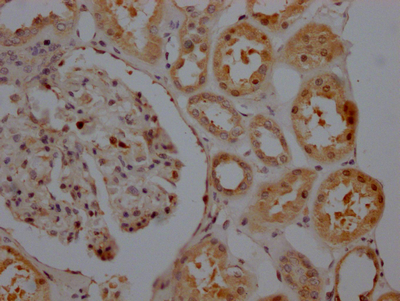The SIRT5 recombinant monoclonal antibody is developed using protein and DNA recombinant technologies. Initially, mice were immunized with a synthetic peptide derived from human SIRT5, followed by removal of the spleen under aseptic conditions. The total RNA of spleen cells was extracted and then synthesized into cDNA through RNA reverse transcription. The cDNA acted as a template for PCR amplification of the SIRT5 antibody gene. The SIRT5 antibody gene was incorporated into a vector and transfected into host cells for culture. The SIRT5 recombinant monoclonal antibody was then purified from the supernatant of cell culture using affinity chromatography. This antibody was rigorously verified and is suitable for detecting human SIRT5 protein in ELISA and IHC experiments.
The SIRT5 protein is a mitochondrial NAD-dependent deacetylase that plays a role in regulating the metabolism of amino acids and lipids. SIRT5 has been shown to target a number of different proteins for deacetylation, including enzymes involved in fatty acid oxidation, the urea cycle, and the tricarboxylic acid cycle. SIRT5 has also been implicated in the regulation of cellular responses to stress, such as oxidative stress and DNA damage.






